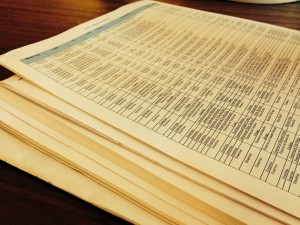Outcome When Reporting Elderly Abuse
After you report nursing home abuse, an investigation takes place. Reporting elderly abuse is the first step in preventing elder neglect and abuse, because nursing facilities may face corrective action, monetary penalty and/or suspension of certification.

Report Elderly Abuse To Create Nursing Home Reform
When you report nursing home abuse, you start a chain of events aimed at reducing elder abuse and neglect in residential settings. Reporting elderly abuse involves providing as many details as you can to help in the investigation. As part of preventing elder neglect, facts are gathered and presented to a state agency. If elderly abuse in nursing homes is proven, those homes face punitive and/or corrective action.
You can report nursing home abuse to law enforcement officials such as the police or sheriff or to a long-term care ombudsman. When reporting elderly abuse, you must provide information about when and where the incident occurred and who was involved. For the next step in preventing elder neglect and abuse, the facts are examined. This investigation into elderly abuse in nursing homes can include observation, review of records and interviews.
After you report nursing abuse and details are investigated, the process continues to the state level. Upon reviewing the allegations of elderly abuse in nursing homes, the state determines whether the charges are sustained or not. If abuse of the elderly is found, further steps are taken to stop senior neglect and abuse. These elder abuse steps can include civil or criminal penalties.
When you report nursing home abuse, the ensuing procedure can be complex and hard to understand. Reporting elderly abuse is the beginning, but you may lose track as the case proceeds through the system. In preventing elder neglect and abuse, many people choose to work with a long-term care ombudsman. When dealing with elderly abuse in nursing homes and senior physical neglect, the ombudsman often serves as a helpful interface between the public and authorities.
Report Elderly Abuse as a Call for Action
People report nursing home abuse to stop senior neglect and abuse in institutional settings. Reporting elderly abuse can result in a variety of outcomes, including monetary ones. When elderly abuse in nursing homes is proven, a monetary penalty can be imposed and restitution ordered for the victim. A finding of elder abuse and neglect can also lead to criminal charges.
Another reason to report nursing home abuse is to require the facility to take corrective action. As part of preventing elder neglect and abuse of the elderly, an offending nursing home must create and follow an action plan. The plan is designed to reduce elderly abuse in nursing homes as well as senior physical neglect in those institutions. It’s a mandated step toward correcting widespread elder abuse and neglect.
If you report nursing home abuse, other possible outcomes exist as well. Reporting elderly abuse may lead to suspension or revocation of the facility’s certification or their ability to get Medicare dollars. As part of preventing elder neglect, a nursing home also may be required to curtail resident admissions until problems are addressed. To stop elderly abuse in nursing homes, a variety of administrative sanctions can be imposed. Nursing homes have the right to appeal these sanctions.
Reporting nursing home abuse takes courage and determination, but it’s essential in stopping abuse of the elderly. Reporting elderly abuse can lead to substantial changes and prevent future elder abuse and neglect. The elderly often don’t report senior neglect, but you can become their advocate. Elder abuse and neglect is something everyone should work to prevent.


Comments are closed.